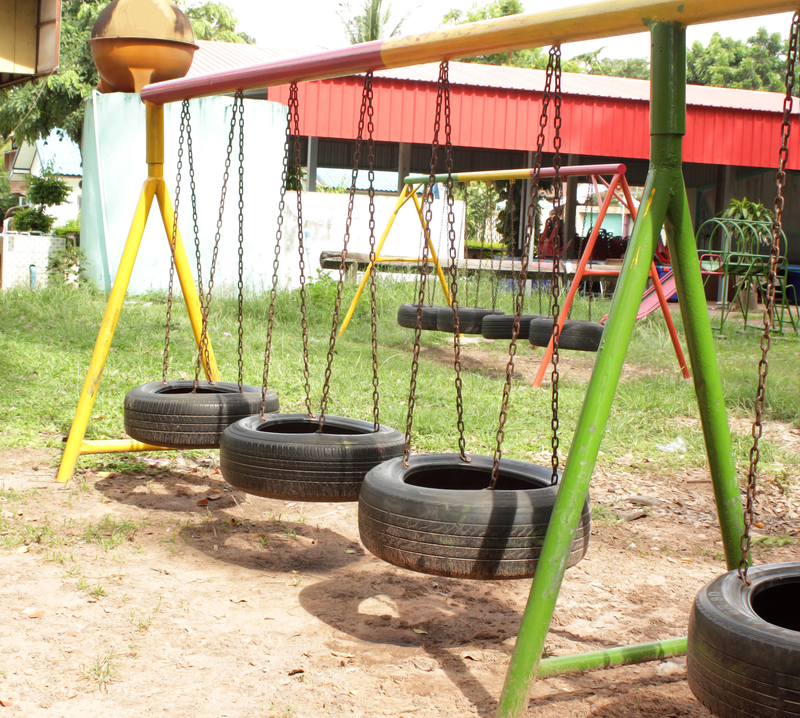Recycling or Repurposing Bulky Waste Items to Save Money
Bulky waste items--such as old sofas, mattresses, appliances, and furniture--often present a significant challenge both for homeowners and for city waste management systems. While many people tend to dispose of these large items at the nearest landfill or pay expensive hauling fees, recycling or repurposing bulky waste items can actually help save money, protect the environment, and spark a wave of creativity in your community. In this comprehensive guide, we'll explore not only the environmental and financial benefits but also actionable ways to recycle, upcycle, and reuse bulky household waste.
Why Should You Recycle or Repurpose Bulky Waste?
Bulky waste constitutes a significant share of municipal solid waste, taking up valuable space in landfills and releasing greenhouse gases as they decompose. By choosing to recycle or repurpose large items, you're making a positive impact in several ways:
- Saves money on hauling and landfill fees.
- Reduces landfill waste, conserving precious landfill space.
- Lowers carbon footprint by cutting down on transportation and landfill emissions.
- Encourages creativity and community spirit through upcycling and donation.
- Offers unique opportunities to give new life to old or damaged items.

The True Cost of Disposing Bulky Waste
Disposing of bulky waste isn't just a matter of getting rid of an eyesore; it often comes with significant costs:
- Hauling Fees: Many waste management companies charge extra for picking up large items, sometimes ranging from $50 to $200 per item.
- Landfill Charges: Local landfills often have surcharges for bulky items, based on size and weight.
- Environmental Impact: Decomposing furniture and appliances can leach chemicals into the ground, damaging local ecosystems and water supplies.
These costs can quickly add up, turning bulky waste disposal into an expensive headache. Instead, recycling or repurposing bulky waste can be a smart money-saving solution--and it's often easier than most people think.
Common Bulky Waste Items and Their Repurposing Potential
Let's take a closer look at some typical voluminous household waste items and discover inventive ways to recycle or repurpose them:
1. Old Furniture
- Wooden Couches, Tables, and Chairs: These can be sanded down and refinished to bring life back into a faded piece. Alternatively, dismantle the wood and repurpose it into shelves, picture frames, or garden beds.
- Upholstered Sofas: Strip out the cushioning and springs for craft projects or pet beds. Wooden frames can serve as trellises or benches in your garden.
2. Mattresses and Box Springs
- Mattress Springs: These can be used in artwork, wine racks, or plant pot holders.
- Foam Padding: Repurpose as insulation in pet houses or craft projects.
- Wood Frames: Use for building materials or garden supports.
3. Appliances (Fridges, Ovens, Washing Machines)
- Metal Frames and Parts: Scrap yards often pay for metals, while artists and hobbyists can use parts in sculptures or furniture.
- Drums from Washing Machines: Perfect for DIY fire pits, planters, or compost bins.
- Glass and Plastic Components: Use in different home or garden projects, such as cold frames or protective covers for plants.
4. Large Electronics (TVs, Computers)
- Cases and Screens: Repurpose as planter boxes, storage containers, or artistic wall pieces.
- Electronic Components: Salvaged parts can be donated to schools, makerspaces, or hobbyists for STEM projects.
5. Carpets and Rugs
- Repurposed as Weed Barriers: Old carpets can be used under mulch to suppress weeds in the garden.
- Reused for Pet Bedding: Cut into smaller pieces as pet pads or mats.
How Recycling Bulky Waste Items Helps You Save Money
Let's focus on the direct financial benefits of recycling your large household items:
1. Avoidance of Disposal Charges
Landfill and curbside bulky item pickups often come with significant fees. By repurposing or recycling large items, you keep that money in your pocket for more essential uses.
2. Income From Scrap and Salvage
Scrap yards and recyclers pay for metals, electronic components, and even some wooden furniture. You can turn old appliances or electronics into a source of income instead of a cost.
3. DIY Savings
By upcycling old items into something useful--think turning a dresser into a kitchen island or an old door into a headboard--you can avoid the expense of buying new furniture or decorative items.
4. Tax Deductions From Donations
If items are still in usable condition, donating to charity may entitle you to a tax deduction (check your local tax laws). This is often far more cost-effective than paying for disposal.
Creative Ideas to Repurpose Common Bulky Items
Repurpose an Old Sofa
- Turn it into an Outdoor Bench: By removing the upholstery and finishing the frame, you can create rustic seating for patios or gardens.
- Use Legs or Arms for Other Projects: Decorative elements can be repurposed into new stools, coat racks, or furniture legs for other projects.
Mattress Upcycling
- Garden Beds: The wooden box spring can be transformed into a raised garden bed for vegetables or flowers.
- Crafts and DIY Decor: Use mattress padding and fabric for soundproofing, quilting, or creating custom cushions.
Reimagine Appliances
- Washing Machine Drum: Create a fire pit, side table, or modern outdoor planter.
- Fridge Shelves: Wire racks can be used as shoe organizers or vertical garden trays.
Repurposing Electronic Waste
- Monitor Aquarium: Old CRT monitors can be cleaned, gutted, and used as quirky aquariums or terrariums.
- TV Stand Planters: The frame of a non-working television can serve as the base for large indoor planters.
Where to Take Bulky Waste for Recycling?
Not every item can or should be managed at home. Some bulky items require special handling, but you still have alternatives that are both economical and eco-friendly:
- Local Recycling Centers: Many towns maintain facilities that accept large items--sometimes free of charge.
- Secondhand Stores and Charities: Organizations like Habitat for Humanity, Goodwill, and The Salvation Army often accept furniture, appliances, and working electronics for resale or repurposing.
- Community Swap Events: Some neighborhoods organize swap days where residents can leave unwanted bulky items for others to claim.
- Online Marketplaces: Post your items on Craigslist, Facebook Marketplace, or Freecycle. Someone might need what you no longer want.
- Specialized E-waste Recyclers: For electronics and appliances, certified recyclers ensure safe handling and disposal of hazardous components.
How to Prepare Bulky Items for Recycling or Repurposing
- Clean and Disassemble: Remove dirt, dust, and detachable parts before repurposing or handing over for recycling.
- Identify Hazardous Components: For electronics and refrigerators, ensure safe disposal of substances like refrigerant gases and batteries.
- Sort by Material: Sorting wood, metals, and textiles will help recyclers process your waste--and may even bring you a better price at the scrapyard.
Encouraging a Recycling and Repurposing Mindset
Adopting a "waste-not" philosophy doesn't just save you money--it sets a positive example for neighbors and younger generations. Below are a few tips for making repurposing a regular part of your routine:
- Stay Informed: Follow local recycling guidelines and updates about community bulk waste events.
- Share Success Stories: Post before-and-after photos of your upcycled projects on social media to inspire friends and family.
- Work Together: Team up with neighbors to collectively repurpose or find new homes for bulky items, reducing costs and building community spirit.
- Attend Fix-It Clinics: Many cities host events where you can learn to repair and upgrade old electronics or furniture.
The Environmental Impact of Recycling Bulky Waste
A key benefit to recycling or reusing bulky household goods is the environmental savings:
- Conserves Natural Resources: Reusing wood, metal, and textiles means fewer new materials are harvested or manufactured.
- Reduces Emissions: Less waste in landfills equals lower methane emissions and reduced energy use for transportation and decomposition.
- Decreases Pollution: Properly recycling electronics and appliances prevents harmful substances from entering the soil and water supply.

Quick Tips for Saving Money Through Bulky Waste Repurposing
- Plan Ahead: Before an item wears out, research ways to give it a second life or list it for sale to recoup some cost.
- DIY Enhancements: Simple skills like painting, sanding, or reupholstering can transform "junk" into valuables.
- Stay Organized: Store salvageable parts from broken items for future repairs or creative projects.
- Network: Share bulky waste management tips with your social or neighborhood groups for mutual benefit.
Conclusion: Transform Waste, Save Money!
Recycling or repurposing bulky waste items isn't just good for your wallet--it's good for the earth, your home, and your peace of mind. Whether you're saving on disposal fees, earning cash from scrap materials, or filling your house with unique, upcycled furnishings, the advantages are clear.
So, next time you're faced with the question of what to do with an old couch, fridge, or mattress, remember: recycling or repurposing bulky waste can save money and resources, and even ignite a creative spark. Start today, and turn what would be landfill fodder into something truly valuable!
Ready to transform your bulky waste disposal habits? Begin with small projects, get the family involved, and soon you'll discover that saving money by recycling or repurposing large household waste is as rewarding as it is responsible.
